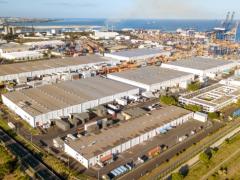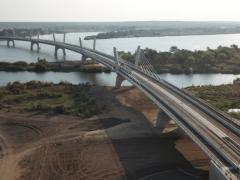The Department of Transport’s announcement that 11 private train operators have been granted access to 41 rail routes will boost competition and protect jobs, according to Business Unity South Africa (Busa).
Transport Minister Barbara Creecy, announcing the decision last Friday, said the reform step was expected to unlock over 20 million additional tonnes of rail freight in the coming year, a critical contribution toward government’s goal of moving 250 million tonnes by rail annually by 2029.
Busa stated that, as the economy battled logistics bottlenecks, rising costs and job losses, a more efficient freight rail system could lower export costs, improve competitiveness, and protect thousands of jobs currently at risk due to rising inefficiencies in key industries, from mining to manufacturing and agriculture.
“This is about saving jobs now and building a stronger economy tomorrow,” said Khulekani Mathe, Busa CEO.
“The success of rail reform will be judged not only by the movement of trains, but by the movement of goods, growth in exports, and the number of South Africans who find work because logistics costs came down.”
Mathe said the opening of freight rail to private operators ended decades of state monopoly. At the same time, for many South Africans, the legacy of privatisation raised valid concerns about equity, access, and control.
“That is why government and business must be clear: this is not about privatising public infrastructure. The rail network remains a national asset, owned by the state and regulated in the public interest.
“What is changing is who can run trains, with more participants now allowed to bring in investment, expertise, and capacity to revive a failing system.”
Busa economic policy director, Lunga Maloyi, said its members were ready to invest, not just in trains, but in rolling stock, rail security, maintenance partnerships and corridor upgrades.
“These investments will revive upstream industries, support local suppliers, and rebuild industrial capabilities weakened by years of neglect. Business also calls for clear, consistent regulation under the Transport Economic Regulator, so that access is transparent, fair, and designed to support long-term national goals,” said Maloyi.
Busa said the milestone, while important, was only the beginning of structural reform of the logistics system, which would only succeed if it delivered real, visible public benefit: lower prices, better infrastructure, more exports and decent work.
“Busa commends the Department of Transport, the Interim Rail Economic Regulatory Capacity, and Transnet’s Rail Infrastructure Manager for the progress made, and commits to working with all partners to ensure that reform is done with South Africans, not just for them,” the organisation said.













